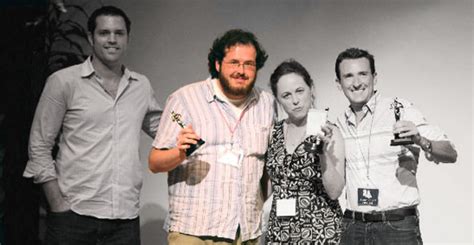A Quote by Toni Morrison
You rely on a sentence to say more than the denotation and the connotation; you revel in the smoke that the words send up.
Related Quotes
Kids use words in ways that release hidden meanings, revel the history buried in sounds. They haven't forgotten that words can be more than signs, that words have magic, the power to be things, to point to themselves and materialize. With their back-formations, archaisms, their tendency to play the music in words--rhythm, rhyme, alliteration, repetition--children peel the skin from language. Words become incantatory. Open Sesame. Abracadabra. Perhaps a child will remember the word and will bring the walls tumbling down.
The first sentence of the truth is always the hardest. Each of us had a first sentence, and most of us found the strength to say it out loud to someone who deserved to hear it. What we hoped, and what we found, was that the second sentence of the truth is always easier than the first, and the third sentence is even easier than that. Suddenly you are speaking the truth in paragraphs, in pages. The fear, the nervousness, is still there, but it is joined by a new confidence. All along, you've used the first sentence as a lock. But now you find that it's the key.
The Four Reliances. First, rely on the spirit and meaning of the teachings, not on the words; Second, rely on the teachings, not on the personality of the teacher; Third, rely on real wisdom, not superficial interpretation; And fourth, rely on the essence of your pure Wisdom Mind, not on judgmental perceptions.
O, but they say, the tongues of dying men enforce attention, like deep harmony: where words are scarce, they are seldom spent in vain: for they breathe truth, that breathe their words in pain. he, that no more must say, is listened more than they whom youth and ease have taught to gloze; more are men's ends marked, than their lives before: the setting sun, and music at the close, as the last taste of sweets, is sweetest last; writ in rememberance more than things long past
Most people write the same sentence over and over again. The same number of words-say, 8-10, or 10-12. The same sentence structure. Try to become stretchy-if you generally write 8 words, throw a 20 word sentence in there, and a few three-word shorties. If you're generally a 20 word writer, make sure you throw in some threes, fivers and sevens, just to keep the reader from going crosseyed.
Certain individual words do possess more pitch, more radiance, more shazam! than others, but it's the way words are juxtaposed with other words in a phrase or sentence that can create magic. Perhaps literally. The word "grammar," like its sister word "glamour," is actually derived from an old Scottish word that meant "sorcery." When we were made to diagram sentences in high school, we were unwittingly being instructed in syntax sorcery, in wizardry. We were all enrolled at Hogwarts. Who knew?
It's kind of like sentencing. A lot of people say that we have a heavy sentence for this crime and a light sentence for another crime, and what we ought to do is reduce the heavy sentence so it's more in line with the other. Wrong. In most cases we ought to increase the light sentence and make it compatible with the heavy sentence, and be serious about punishment because we are becoming too tolerant as a society, folks, especially of crime, in too many parts of the country.






































